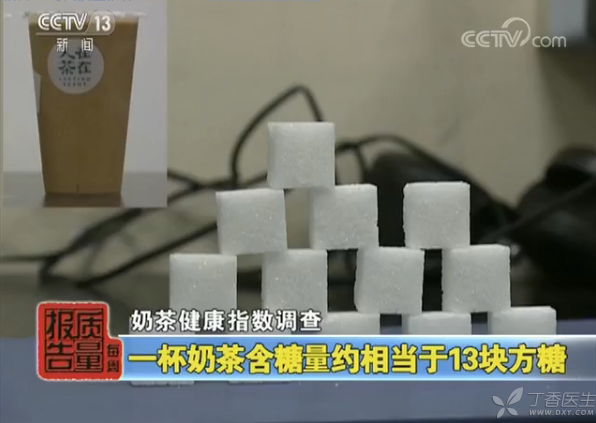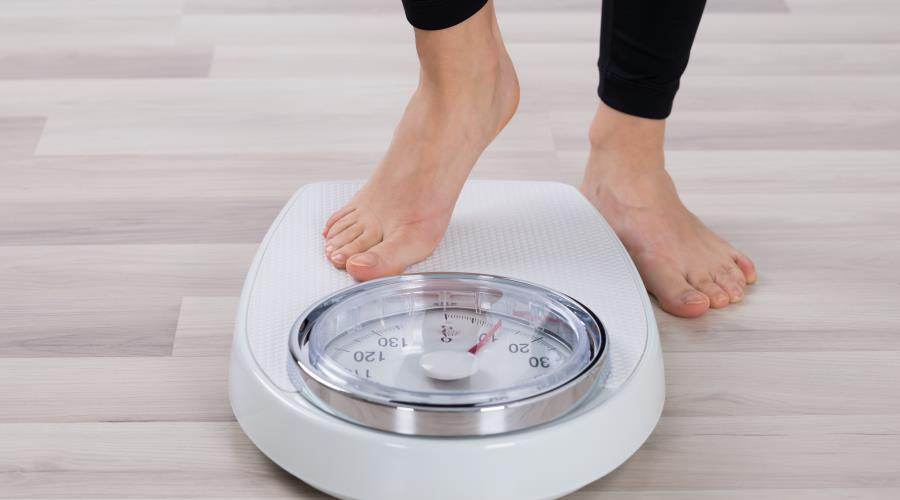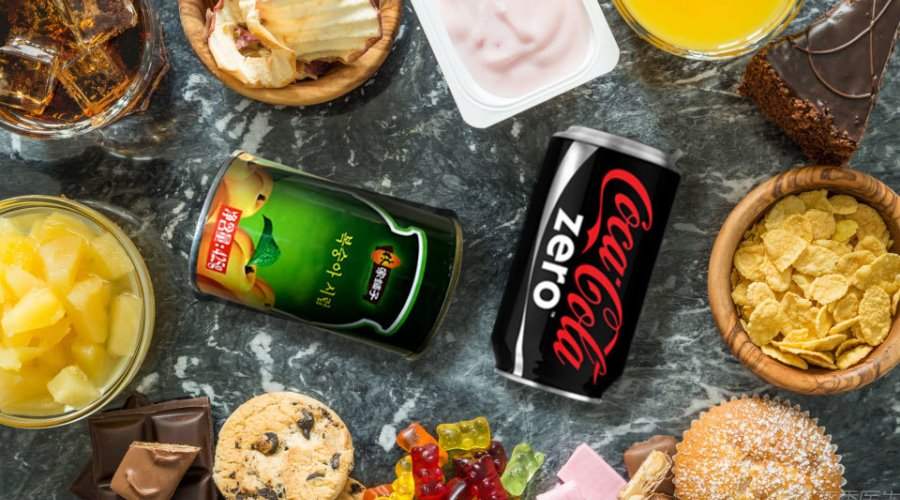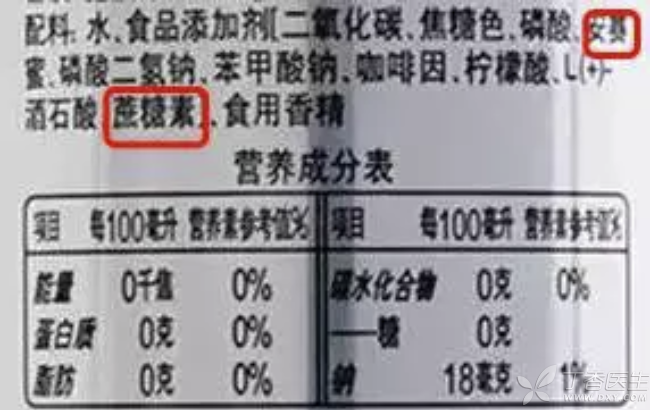One day in December 1965, chemical researcher Schratt wanted to take a piece of paper while synthesizing anti-ulcer drugs at G.D.Searle Company. He accidentally licked his finger and found it had a strong sweet taste.
As a result, the ulcer drug was not made, but [aspartame] was found instead.
What he did not expect was that [aspartame] later changed the way of human life, allowing people who could not eat sugar to have a [sweet] life.
It also makes many sweet lovers no longer worry about the health hazards caused by eating sugar, such as obesity, diabetes, etc.
[Aspartame] Why is it so magical? Is it what’s relationship with sugar? Why is it not harmful to sugar?
All these stories should be told from [human beings love sweet].
It’s not your fault to love sweet food.
As early as thousands of years ago, human love for sweetness was already part of [body memory].
Because in the long history of evolution, hunger was the greatest survival challenge our ancestors faced.
Imagine, when human beings have not yet learned to hunt or master farming techniques, how can they feed themselves with what?
Wild vegetables, berries, honey… foods with high sugar content were all [luxuries] to our ancestors. It was these foods that provided energy for people to spend one difficult winter after another.
Sugary foods are not only an important source of energy for the human body, but also bring us happiness. When people eat sweets, they activate dopamine neurons in the brain.
This substance stimulates nerve endings, makes people feel excited and more eager to eat sugar.

What kind of sugar will make you fat?
We eat [sugar] every day:
Carbohydrates that provide most of the energy every day are actually sugar.
Fruits and vegetables contain fructose and glucose.
Milk contains lactose……
Generally speaking, most people’s normal intake of these sugars will not cause health problems unless they eat fruits as food and drink milk as water.
What really needs to be paid attention to is [adding sugar], such as sucrose and high fructose syrup. These sugars may exceed the standard unconsciously, thus affecting your health.
The World Health Organization (WHO) recommends that people limit their intake of added sugar to less than 10% of their total energy per day, which is about 50g for an average adult. Beyond this range, the risk of tooth decay and obesity will be increased.
Obesity, on the other hand, is likely to induce a series of diseases such as elevated blood lipid, insulin resistance, platelet dysfunction, coronary heart disease, diabetes, etc.
[I haven’t eaten a mouthful of sugar today, how can I exceed the standard? ]
Look at this set of data and you will understand:

CCTV once exposed before, [1 cup of milk tea = 13 cubes of sugar].
Based on the fact that one cube of sugar is equal to 4 grams, an adult can eat up to 12.5 cubes of sugar a day.
The sugar content of a plate (200g) of sweet and sour spareribs is equal to 9 cubes of sugar.
The sugar content of a pack (100g) of jerky pork is equal to 8 cubes of sugar.
A bowl (100g) of ice cream contains 5.25 cubes of sugar.
…….
Even if you don’t take the initiative to eat sugar, you are still controlled by sugar. What should I do if I want to get rid of this situation?
Even if you like sweet, you can not get fat.
1. Sweeteners are good news
Thanks to the spirit of scientists like Schratt [what dares to lick], we can enjoy the good news brought by sweeteners.
Sweeteners are very sweet, and their sweetness is usually hundreds or even thousands of times that of sucrose. Therefore, only a small amount of sweeteners are needed to obtain a good sweetness.
Compared with sugar, sweeteners do not bring excess energy, and replacing sugar with sweeteners can also reduce the risks of tooth decay, obesity and other diseases.
So like aspartame, people who want to lose weight and patients with type 2 diabetes can also eat it.

Although sweeteners have many advantages, they still suffered a lot of [unfair] treatment in their early days.
2. Thirty years of [carcinogenic] blame
Like all superhero stories, the hero is questioned at the beginning:
Since the 1980s, studies have warned that aspartame may cause epilepsy and headache.
In the 1990s, an American study suggested that aspartame might be associated with brain tumors.

However, the results are bound to reverse. In the past 30 years, a large number of research results have confirmed that aspartame does not cause cancer.
The National Cancer Institute (NCI), an international authority, confirmed that aspartame does not increase the risk of cancer. And the European Food Safety Agency (EFSA) also released a report in 2013, confirming that aspartame is safe and does not cause cancer.
Now the U.S. Food and Drug Administration (FDA) calls aspartame [one of the most thoroughly studied food additives] and its safety [without doubt].
3. Guaranteed sweetness
Any sweetener must undergo strict safety assessment before being approved for use. Currently approved sweeteners, whether acesulfame, aspartame or neotame, have been proved to be safe.
Take aspartame as an example. The Committee of Experts on Food Additives (JECFA) and the European Food Safety Administration (EFSA) have evaluated its safety several times and finally determined that the safe intake of human body is 40 milligrams per kilogram of body weight.
In other words, people weighing 60 kilograms eat less than 2.4 grams a day, which will not affect their health at all.
China’s standard requires that the maximum content of aspartame in carbonated beverages should not exceed 0.6 g/kg, and you need to drink at least 8 bottles of 500 ml carbonated beverages containing sweeteners to reach 2.4 g..
Therefore, it is safe to eat sweeteners approved by the state. Of course, you need to eat them in an appropriate amount.
These sweeteners are safe

Regarding sweeteners, we should also pay attention to two issues.
1. How to judge sweeteners?
The sweetness difference between sweeteners and sugar is very small, which is difficult for ordinary people to distinguish, and people need not worry too much about this difference. If you buy packaged food, you can easily identify sweeteners by looking at the food composition table.

Can anyone eat sweetener?
[Phenylketonuria] Patients cannot eat aspartame.
Therefore, all food labels containing aspartame must indicate a warning sign [containing phenylalanine] after aspartame to remind patients not to eat it.
Finally, should sweetener or sugar be chosen?
People are always struggling with restraint and impudence to find a balance. And I want to say [don’t overdo it, just be happy].
